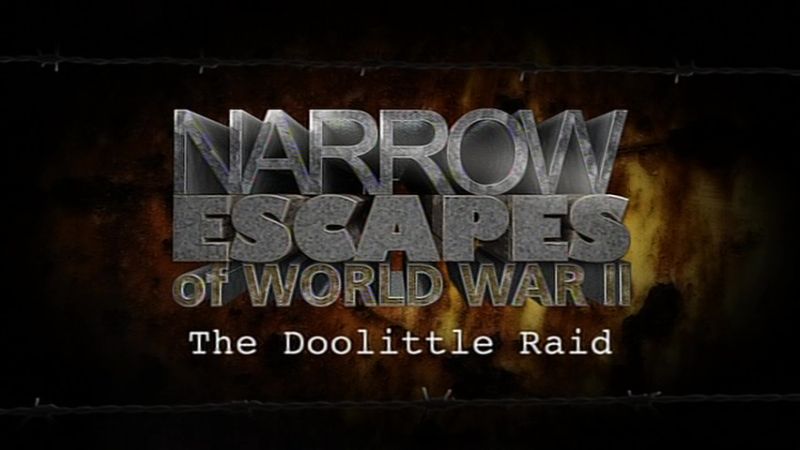Narrow Escapes of World War II episode 2: In the wake of the humiliation of Pearl harbour, Colonel Jimmy Doolittle was asked to mount an astonishing raid. For the first time ever, bombers would be put onto aircraft carriers and shipped over near Japan. They would then hit Tokyo. The trouble was, the bombers couldn’t land on the aircraft carriers. Instead, the crews had to fly to China and then bail out. Many ditched in the sea. Others met up with resistance fighters and then tried to evade the Japanese. Several were captured. This film has exceptional footage of the raid itself and testimony from several of the surviving Doolittle raiders.
Humbling tales of heroism from WWII. Hear first-hand about America’s astonishing first air raid on the Japanese archipelago, led by Colonel ‘Jimmy’ Doolittle. Following the attack on Pearl Harbor, America seeks a way to hit back at Japan. Col. Jimmy Doolittle puts B-25 bombers on aircraft carriers and sails towards Japan, aware that the crews have little chance of surviving the mission. This story of one of the most daring bombing raids of World War Two, told through the eyes of some of those who took part in early 1942. From the US, flying ace Jimmy Doolittle, was the answer against the Japanese force. The operation would push them to the limit of their flying range. Everything would have to go exactly to plan.
Narrow Escapes of World War II episode 2
The Doolittle Raid, also known as the Tokyo Raid, was a pivotal moment in World War II that helped shift the momentum of the war in favor of the Allies. On April 18, 1942, a group of 16 B-25 bombers, led by Lieutenant Colonel James Doolittle, took off from the USS Hornet aircraft carrier and conducted a surprise bombing raid on Tokyo, Japan’s capital city.
The raid was not intended to cause significant damage to the city but rather to boost morale in the United States and to show Japan that it was not invulnerable. The daring mission required extensive planning and preparation, with the bombers stripped of all nonessential equipment to reduce weight and increase fuel efficiency. The crews trained for weeks on takeoff and landing from a short runway, as they would have to do once they reached their targets in Japan.
The raiders faced significant challenges from the outset, with a Japanese patrol boat spotting the Hornet just hours before the planes were set to launch. Despite this setback, the bombers took off successfully and flew over 600 miles to reach their targets. The raiders faced heavy anti-aircraft fire and encountered unexpected cloud cover, which made it difficult to hit their targets accurately.
Despite the challenges, the raiders successfully dropped bombs on Tokyo, causing limited damage but sending a powerful message to Japan. The raid was a significant morale boost for the United States, which had suffered several setbacks in the war’s early years. It also marked the first time that the Japanese homeland had been attacked during the war, showing that Japan was vulnerable to Allied attacks.
However, the raid was not without its costs. The bombers did not have enough fuel to make it back to the Hornet, and instead, they crash-landed in China. Many of the crew members were captured or killed by Japanese troops, and the Chinese who helped them were subjected to brutal retaliation. Nevertheless, the Doolittle Raid demonstrated the courage and determination of the Allied forces and helped set the stage for future victories in the Pacific theater of the war.




